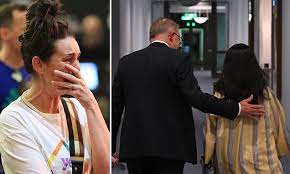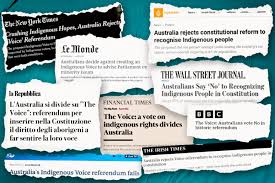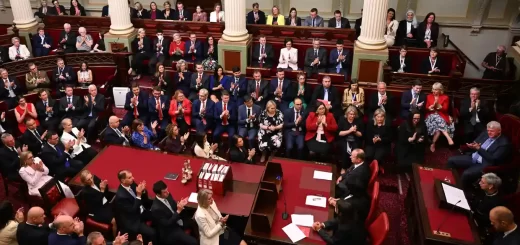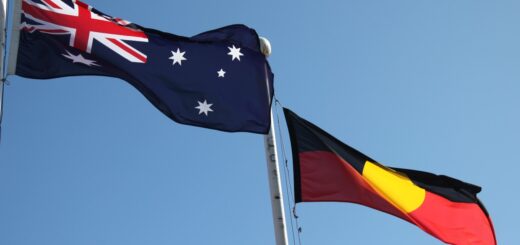An Apology for the Referendum’s Failure
 On Saturday, six out of every ten Australians rejected the government’s proposed law to amend the constitution. The proposal was to add a section in the Constitution which would state that in recognition of Australia’s indigenous people as the nation’s first peoples there shall be a body called the voice, which may make representations to parliament and the government on matters relating to Indigenous peoples, and in regards to which parliament shall have power to make laws regarding all matters relating to the voice apart from its existence.
On Saturday, six out of every ten Australians rejected the government’s proposed law to amend the constitution. The proposal was to add a section in the Constitution which would state that in recognition of Australia’s indigenous people as the nation’s first peoples there shall be a body called the voice, which may make representations to parliament and the government on matters relating to Indigenous peoples, and in regards to which parliament shall have power to make laws regarding all matters relating to the voice apart from its existence.
Many Australians, and especially Indigenous Australians, are understandably deeply disappointed with the referendum defeat. Some are angry with those who voted No. However, before being caught up in this sentiment it is important to consider the following. Does the outcome of the referendum really suggest that we are a racist country? Does it disclose that most Australian’s reject the fact that our Indigenous peoples are the first peoples of this nation? Does it suggest that non Indigenous Australians do not support reconciliation with Indigenous peoples? Can the loss be attributed to misinformation by those advocating a No vote? In my view, the answer to all these questions is No, for the following reasons.
The 2017 Uluru Statement from the Heart clearly sees constitutional recognition through the establishment of a Voice as the next step in non Indigenous Australian’s reconciliation with Indigenous Australians. For this reason some Indigenous leaders see the outcome of the referendum as a setback to reconciliation. The No vote victory appears to support this view, but only if we assume that many Australians had any real knowledge or understanding of the Uluru Statement.
The referendum proposal needed to be upfront about the proposal’s reflection of the wishes of Indigenous people as understood by Aboriginal leaders and translated into a proposal for Constitutional amendment. Perhaps most importantly, voters needed to understand why a Constitutional Voice is required, and its advantages over existing representations to parliament on behalf of Indigenous people. The only reason given was that if entrenched in the constitution, the body called the Voice could not be abolished and therefore would guarantee ongoing Indigenous peoples’ advice to parliament and government.
This statement is clearly misleading in that it fails to mention that apart from a guarantee of continued existence the Voice would for all practical purposes be no different to bodies that currently advise and make representations on behalf of Indigenous people.
To describe the Voice as an advisory body is also to overlook that the proposed amendment expressly stated that parliament is to have power to make laws regarding matters relating to the voice, including its composition, functions, powers and procedures its functions. In other words there is no guarantee of any continuity or of the extent to which the Voice need necessarily advise or even be listened to by parliament or government. Under the proposal, the Voice need not be representative of Indigenous people annd its composition need not even include any Indigenous people. While the uncertainty and powerlessness of the Voice is clearly evident in the wording proposed amendment, its attraction to many indigenous people and to YES voters appeared to be symbolic or based on assumptions about its implementation by governments, and the difference it would make.
It could be suggested that the Yes camp was focused on the symbolic importance of this referendum proposal being approved, while No voters were more focused on how the constitutional amendment would address Indigenous disadvantage. Yes voters saw questions of implementation as distractions from what they believed, would symbolically be a momentous step for the nation. No voters, on the other hand, did not not share the Yes camp’s conceptual, academic or symbolic perception. The stark distinction between inner city electorates on the one hand and those of outer suburbs and regional Australia appears to support this view.
In short, support for recognition of Indigenous peoples as Australia’s first people was tied to support for the establishment of a Voice. The benefits of establishing a Voice and why it needed to be entrenched in the constitution were not presented and consequently, were predictably and understandably not supported.
Of course, there were extremists who voted No for reasons not supported by any significant number of Australians. While it is convenient to point to them, and their reasons as accounting for the defeat of the constitutional proposal, to do so is to overlook the reasons consistently given by consulted electors.
 Like many Australians, I feel for the Yes voting Indigenous people, many of whom feel rejected, sad, and angry and some, inconsolable. Australians do want to recognise Aboriginal and Torres Strait Islander Peoples as this nation’s first peoples. But, to do so, most Australians needed to understand why the Voice would be a step forward.
Like many Australians, I feel for the Yes voting Indigenous people, many of whom feel rejected, sad, and angry and some, inconsolable. Australians do want to recognise Aboriginal and Torres Strait Islander Peoples as this nation’s first peoples. But, to do so, most Australians needed to understand why the Voice would be a step forward.
I am also angry that for, what I can only see as tactical advantage, at grass roots level many were led to believe that the Yes vote would win, and hence were left in grief and disbelief that the vote was lost. This was not an upset result. The result was as expected for weeks prior to the referendum and increasingly clear cut in the run up to the referendum.
The government was aware of the fact that no previous referendum had been successful unless it had bipartisan support. A proposal for an amendment to the constitution needed to reflect a consideration by all Australians and not just the sector of Australian society most affected. In pressing on despite diminishing support, the Government appeared to persevere for political and sentimental reasons rather than consolidate support before taking a proposal to a referendum. Education, involvement and consultation of the broader community was particularly crucial, if the proposal was to address the frequently voiced concerns based on the undesirability of creating division and setting the Indigenous people apart from the rest of the community.
 My sense was that the government counted on a majority voting YES to the entire package even though only the recognition part of the question had clear national support. This distinction is not to be discerned in media reports of the referendum, both domestic and overseas, with the consequence that our nation is unjustly inferred to be racist.ki
My sense was that the government counted on a majority voting YES to the entire package even though only the recognition part of the question had clear national support. This distinction is not to be discerned in media reports of the referendum, both domestic and overseas, with the consequence that our nation is unjustly inferred to be racist.ki
In the case of this unsuccessful referendum, there is a need to find someone to blame. Otherwise, unwarranted conclusions will continue to be draw. This referendum was lost because no opportunity was provided for Australians to show their overwhelming support for constitutional recognition of Indigenous peoples as the nation’s first peoples. It was also lost because either the reasons for proposing the Voice were not explained, or because this proposal was not considered in a constitutional convention by a cross section of Australian people. Attributing blame to the No camp is a distraction by those who should known better, who need to accept responsibility, and most importantly, who owe Indigenous people an apology.


